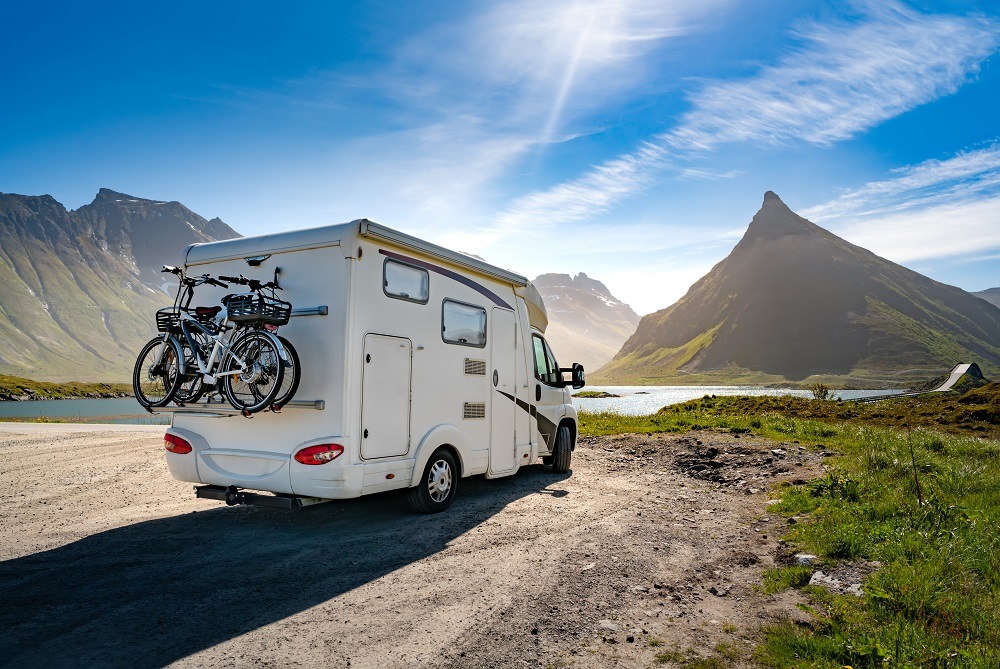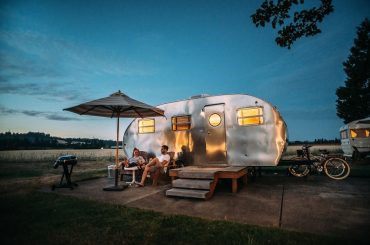So you’re thinking about possibly living on the road in an RV, but you aren’t quite sure how to go about it, so you decide to try it out at first, for a year. But even living on the road for a year has its challenges. Whether or not this is a stepping stone towards permanently living on the road in an RV or you just want to escape your regular everyday life to come back refreshed and adjusted mentally and emotionally, here are the best tips for a year of RV life.
Make a Plan for Your Year Long RV Journey
Before you do set out on your radical year-long journey, you have to know where you’re going, where you can stay at or park in the states you’ll visit, and whether or not they’re safe. The latter is important with regards to those planning to travel solo. In addition to keeping safe, you may also just want to know if there are celebrations or festivals in each of the states you’ll visit that you won’t want to miss so you can circumvent your schedules around that. Every time you move into a new area, make sure you’ve got the safest routes to pass through and choose the most traveled ones. Once you do get there, keep your head on a swivel.
Become Good at Communication with your Fellow Full Time RVer Travel Companion
This might not be so much for the solo travelers, but for those who are going as a pack, it matters to have clear cut communication. A limited and cramped space can encroach on your emotions and contribute to shortened tempers, creating arguments and silent treatments that you do not need out on the road in case of emergencies. You must all be prepared to communicate about any situation that can arise. You don’t want to begin on a high note and come out of a year of RV life having ruined a relationship important to you. Good communication is key to starting out RV life.
Be Equipped and Knowledgeable about RV Repairs
You have to know what you’ll need out there—tools, first aid kits, bug out bags, extra water, extra gas, pocket multi-tools. Anything can happen out on the road. It’s better to be able to rely on yourself than to have to rely on roadside assistance or strangers you won’t necessarily trust who can charge you extra because they can smell the inexperienced traveler on you. Know how to repair your vehicle, leaks, flats because all things break with time. When you’re living out on the road, actual literal road bumps are to be expected. You are no longer in the suburbs and need to be fully knowledgeable about common engine repairs.
Consult Your RV Manual Frequently
You’ve bought yourself a camper and are ready to play with it, but before you do, read its manuals. Every camper comes with one. Set aside a night to read them. There are online versions you can look up and download over the internet for the specific model you bought. In case anything goes wrong in the night, you’ll need to know what goes with what and what thing goes where. All RVs are all built differently; sure, there may be similarities, but you don’t really want to count on similarities or hunches out on the road, do you? No, you want to be sure. Gather up those manuals and read up.
Focus on Lighter Loads for Your RV
Sure, it might just be a year, but it’ll be a suffocating year if you don’t pick and choose what is truly necessary to bring with you. Anything you bring with you needs to coincide with the route you’re taking and the seasons you’ll be in. Pack shoes only according to the terrain you’ll encounter on your trip and according to your travel plan. The same goes with clothes, as there will be no need to bring ten different puffy jackets if you aren’t going to spend too much time in colder climates. You might even circle back to states that are mostly warmer to avoid it. Try to separate needs and wants, and maybe then you’ll have a clear cut list.
Become Well Organized at Managing the Space in Your RV
There must be a place for everything in your RV. The little that you do bring with you will accumulate in that limited space. Be creative in creating storage that goes underneath other pieces of furniture, maximizing space you didn’t even know you had. Even more important, you have to know where to put the things you do bring with you, saving you a lot of trouble if something needs fixing or in case of emergencies. Situations aren’t as controlled or won’t go the way you think they would out on the road. Know where everything is, and you’ll save a lot of time for yourself.
For advice and tips on how to maximize the space in your RV, consult our Huge List of RV Storage Ideas.
Having Extra Funds for Emergencies While Full Time RVing
Always have another fund saved that you can tap into in case of emergencies, or if not for emergencies, a fund you can use for some extra fun on the road. This extra fund allows you to have extra room for extracurricular activities and supplies without draining funds for more important things. An extra fund also allows you to be more flexible with travel and locations because if you’ve exceeded your budget at a certain place but want to stay a bit longer, you have a fund to reach into. But keep in mind, the extra isn’t to be abused, and it’s better if funds are separated for emergencies and for the little bit extra.
You should always share in the daily tasks, whether that be driving, cooking or cleaning. No one should ever feel as though they’re pulling most of the weight. In this challenging environment where things are unpredictable, everyone in the group must pull their own weight and contribute what they can. Without teamwork, this year-long trip will be fraught with conflict, miscommunication and in-fighting. You want to be locked in the small cramped space with a positive attitude, and that is only possible when everyone is cooperative and does what they can.




